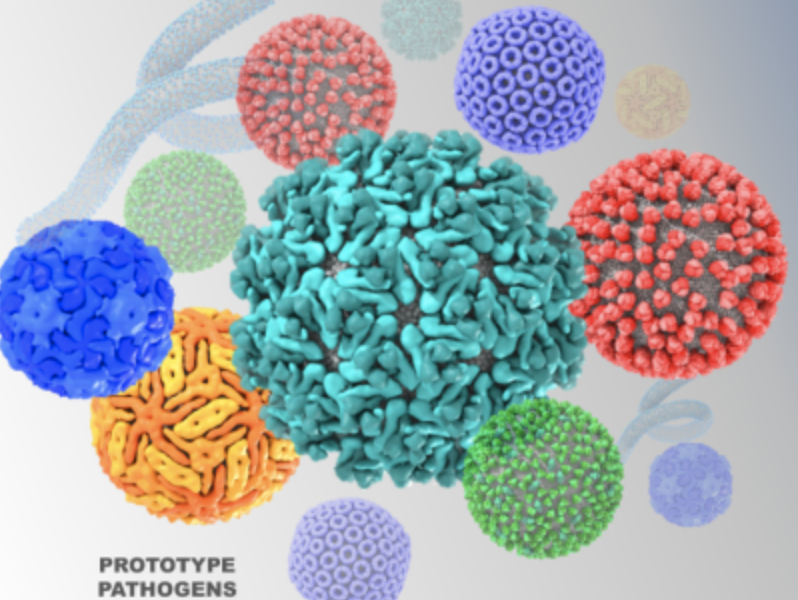A special Oct. 19 supplement to the Journal of Infectious Diseases contains nine articles intended as a summary of a National Institute of Allergy and Infectious Diseases (NIAID)-hosted pandemic preparedness workshop that featured scientific experts on viral families of pandemic concern. Sponsored by NIAID, the supplement features articles on 10 viral families with high pandemic potential known to infect people. Concluding the supplement is a commentary from NIAID staff on the “road ahead.”
Many of the viruses in these 10 families have no vaccines or treatments licensed or in advanced development for use in people. Rather than facing the enormous task of developing medical countermeasures for individual viruses, one strategy is to use the “prototype pathogen” approach – which was shown to be successful with the rapid development of vaccines during the SARS-CoV-2 pandemic. This approach characterizes “representative” viruses within viral families so that knowledge gained, including medical countermeasures strategies, can be quickly adapted to other viruses in the same family.
The NIAID workshop on pandemic preparedness had several goals, including to describe the prototype pathogen approach, select prototype pathogens for future study, and identify knowledge gaps within the selected viral families. Prototype viruses being considered for study within the 10 families of pandemic concern are listed below. The ranges of these prototype viruses span the globe.
